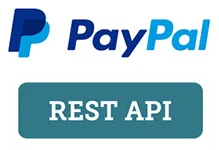I have successfully implemented webhook integration using Sandbox in Paypal.
Now I want to make it more secure so that only Paypal signed notification is accepted.
I was trying to verify webhook signature using
https://developer.paypal.com/docs/api/webhooks/v1/#verify-webhook-signature_post
But it always returns FAILURE.
The request is :
{"auth_algo":"SHA256withRSA","transmission_time":"2020-08-17T12:11:08Z","cert_url":"https://api.sandbox.paypal.com/v1/notifications/certs/CERT-360caa42-fca2a594-1d93a270","webhook_id":"0JD18557VD498931R","transmission_id":"bbaae190-e082-11ea-aa52-1fdbf2bc8461","webhook_event":{"summary":"Payment completed for $ 5.0 USD","event_type":"PAYMENT.SALE.COMPLETED","create_time":"2020-08-17T12:11:05.015Z","resource":{"billing_agreement_id":"I-DNVD3H9UWYHL","amount":{"total":"5.00","currency":"USD","details":{"subtotal":"5.00"}},"payment_mode":"INSTANT_TRANSFER","update_time":"2020-08-17T12:10:39Z","create_time":"2020-08-17T12:10:39Z","protection_eligibility_type":"ITEM_NOT_RECEIVED_ELIGIBLE,UNAUTHORIZED_PAYMENT_ELIGIBLE","transaction_fee":{"currency":"USD","value":"0.45"},"protection_eligibility":"ELIGIBLE","links":[{"method":"GET","rel":"self","href":"https://api.sandbox.paypal.com/v1/payments/sale/8TV124151P468690Y"},{"method":"POST","rel":"refund","href":"https://api.sandbox.paypal.com/v1/payments/sale/8TV124151P468690Y/refund"}],"id":"8TV124151P468690Y","state":"completed","invoice_number":""},"resource_type":"sale","links":[{"href":"https://api.sandbox.paypal.com/v1/notifications/webhooks-events/WH-2XT265922L1486124-74F09092JL7840709","rel":"self","targetSchema":null,"method":"GET","enctype":null,"schema":null},{"href":"https://api.sandbox.paypal.com/v1/notifications/webhooks-events/WH-2XT265922L1486124-74F09092JL7840709/resend","rel":"resend","targetSchema":null,"method":"POST","enctype":null,"schema":null}],"id":"WH-2XT265922L1486124-74F09092JL7840709"},"transmission_sig":"RYILWohVPkK0hUrMjTSU3+fCgd6NTgqkjrZtsOJiC7FR3U3atOK1k29/Md8DQRReAicdfOpXrS7E4vrvB17HOM39w/D3i4Ohy34HL3CqSsZovL69lhfFmviCGkXjjSbkBhpKGJvQAB4q0E9AWl/SBZc4MUNGezIbk/laJZ6ikQuwGeEHCFaPVrza7kSlZRo03lM9sYSb7q3ixewYmz8voKIyJ2RYjOgsAohNFWgovtKwG+ac66YCp3ZRJLe4fL2Q1UaEDn5BnUhK+5Q2+EqD+BixpqNTuSmYqRwkyDTdrH1EPV5DRU4uYM0gJLXnBovGaqHe8JujpVs+dJu4Mrmgdg=="}
and the result is
{"verification_status":"FAILURE"}
Can someone help, please !!

 Question posted in
Question posted in 

2
Answers
If you are getting those values from the webhook simulator as they said in their documentation you can’t verify mock webhooks.
What I used to do when I need to validate the value because some test need that part it’s that using the smart buttons to generate the request and then catch the response in some webhook.
Verify Paypal webhook notification
How to verify the authenticity of the notification in php:
The transmission id, the transmission date, the webhook id and a CRC over the HTTP body. The first two can be found in the header of the request, the webhook id in the developer backend (of course, that id will never change), the CRC is calculated like shown below.
The certificate’s location is in the header, too, so we load it and extract the private key.
Last thing to watch out for: The name of the algorithm provided by Paypal (again in a header field) is not exactly the same as understood by PHP. Paypal calls it "sha256WithRSA" but openssl_verify will expect "sha256WithRSAEncryption".